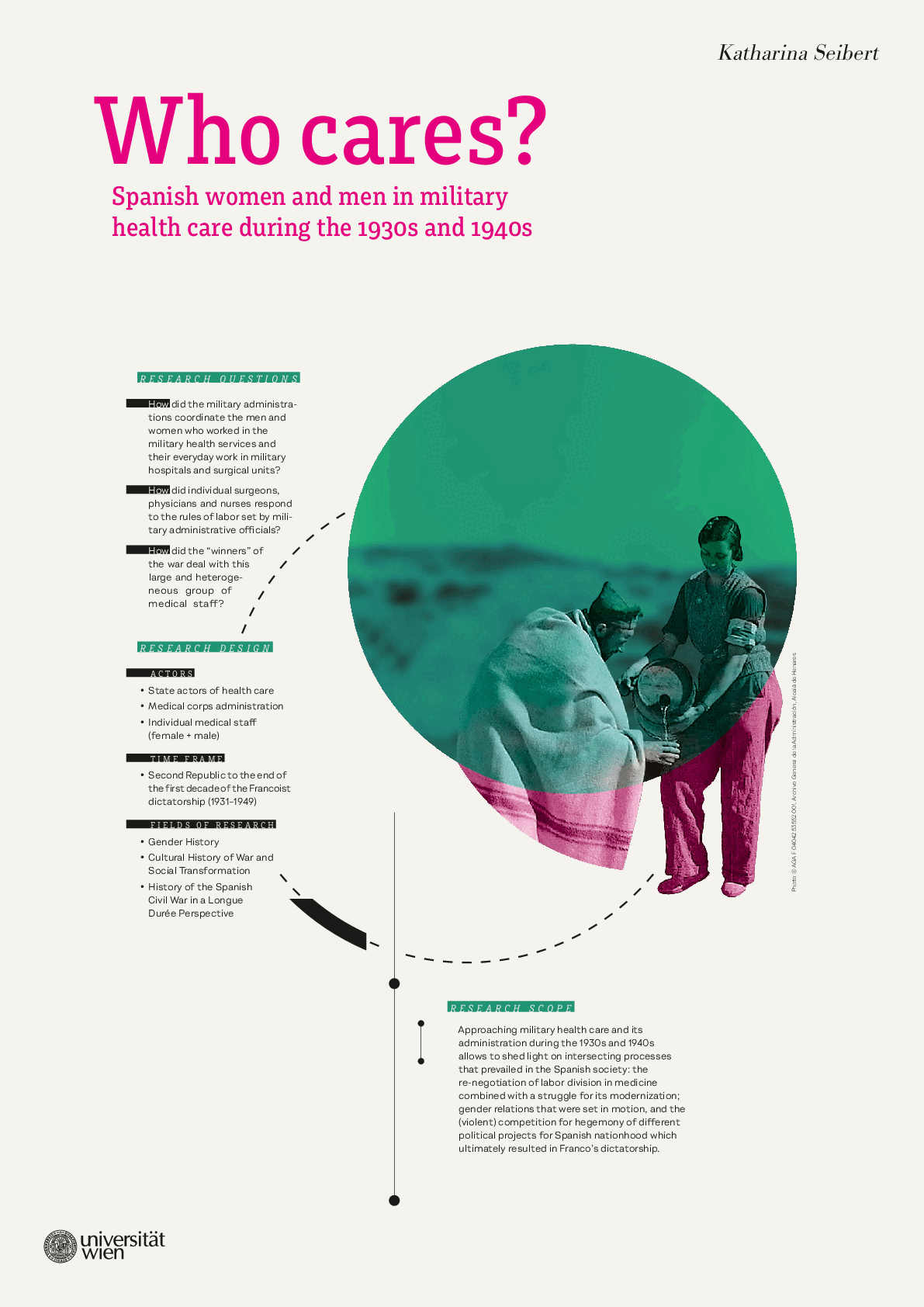
Who cares? Spanish women and men in military health care
Katharina Seibert
Abstract
The 1930s and 1940s constituted a decisive period in Spanish contemporary history, in general, and its health care history, in particular. In only two decade an ambitious democratic project was launched, plunged into a bloody civil war, and replaced by an ultranationalist dictatorship. During this period questions on the relation between state and citizens were raised with an unknown intensity. Health care was one arena where the negotiation of this relationship surfaced: defenders of the private practice system clashed with promoters of the providential state, secular nurses confronted the Catholic monopoly of care-work, physicians and surgeons defended what they considered hegemonic knowledge against rising new professions that stirred turmoil in the established medical labour division.
Approaching military health care and its administration during period from a gender historian’s perspective allows to shed light on intersecting processes: the re-negotiation of medical labour which combined with a struggle for modernization; gender relations that were set in motion; and the competition for hegemony of different political projects for Spanish nationhood which would ultimately result in a dictatorship. Or to put in other words, while democrats defended the Republic at the sickbed, Francoists built there their vision of the “new” Spain.
